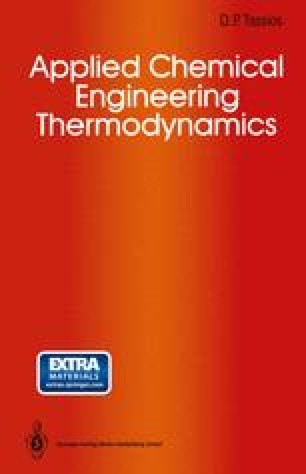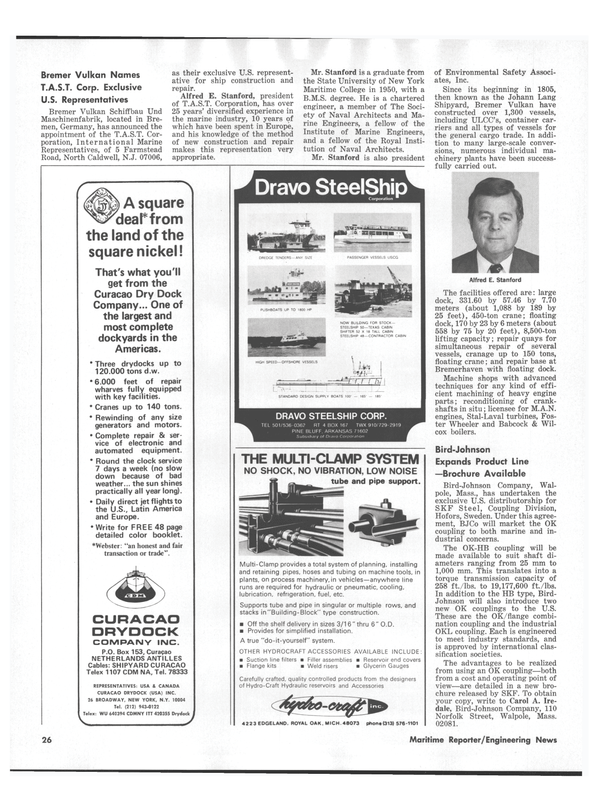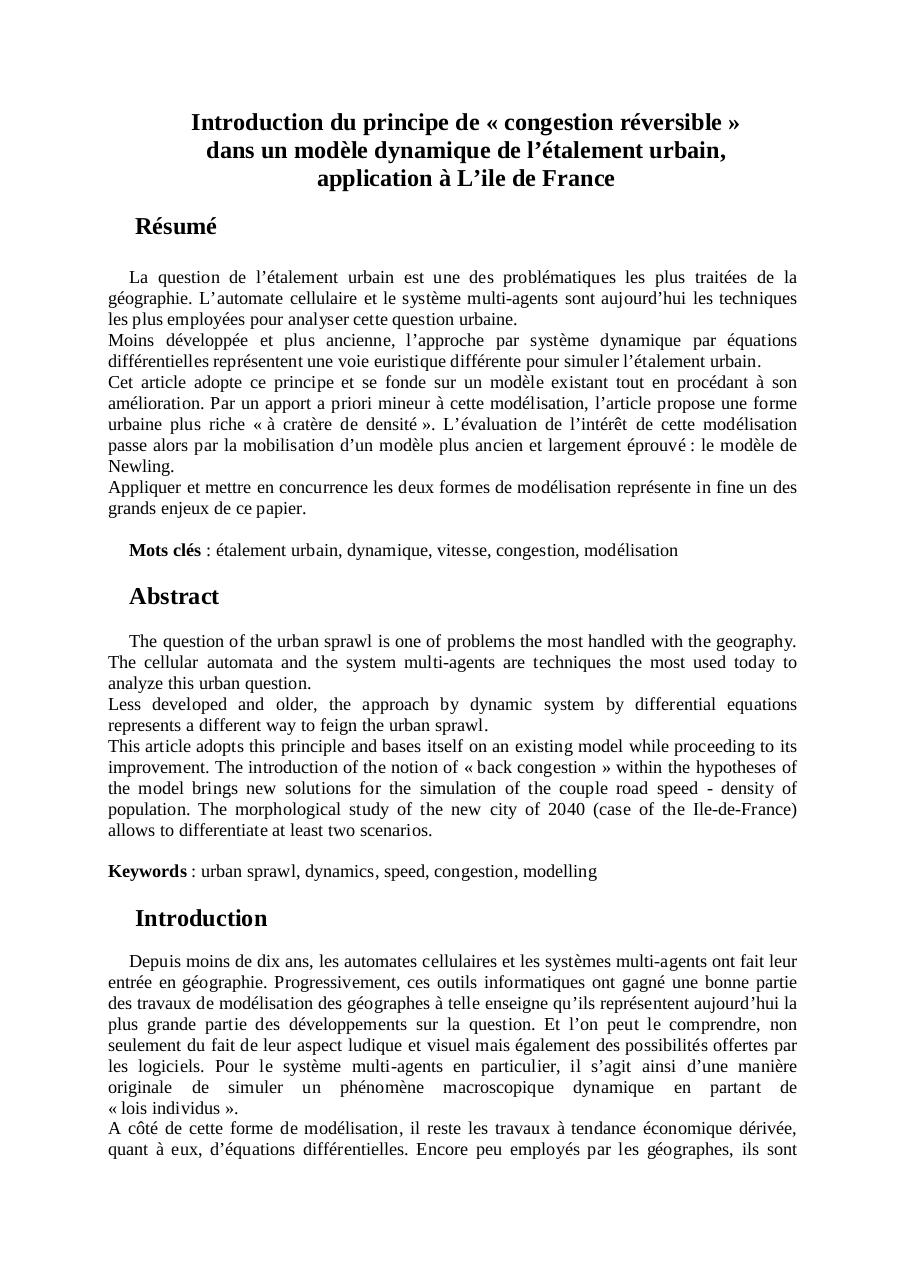
descartes.article.pdf René Descartes Truth scribd.com This paper reflects on the status of Descartes' notion of the mind‐body union as an object of knowledge in the framework of his new philosophy of nature, and argues that it should be taken seriously as representing a third kind of real thing or reality—that of human nature.
Descartes' Deontological Turn by Noa Naaman-Zauderer
Bibliography for PI11007 Descartes Thought and Reality. Veja grátis o arquivo Descartes' Theory of Ideas (Stanford Encyclopedia of Philosophy).pdf enviado para a disciplina de Filosofia Categoria: Outros - 9 - 16604939, Lahore University of Management Sciences 5. Objections and Replies on Meditation One (SPW 123-26) G. Hatfield: Routledge Philosophy Guidebook to Descartes and ….
M. D. Wilson, Descartes (Routledge, 1978), pp. 177-201. M. D. Wilson, вЂThe epistemological argument for mind-body distinctness,’ in J. Cottingham (ed.) Descartes (Oxford: OUP, 1998), pp. 186-96. M. Rozemond, Descartes’ Dualism (Harvard UP, 1998), Ch. 1. * Early Modern Philosophy Tutor: James Openshaw 3 WEEK 3: LEIBNIZ ON NECESSITY AND CONTINGENCY Leibniz’s views on the topics … 'A Companion to Descartes' by Janet Broughton & John Carriero is a digital PDF ebook for direct download to PC, Mac, Notebook, Tablet, iPad, iPhone, Smartphone, eReader - but not for Kindle. A DRM capable reader equipment is required.
Cottingham, J. (1976): Commentary on Descartes' Conversation with Burman, trans. John Cottingham, 53–120, Oxford: Clarendon Press. Google Scholar In making this general claim, I am in agreement with what Bernard Williams says in “Descartes’s Use of Skepticism” (1983), but I do not agree with the claim he seems to make in Descartes (1978), that it is helpful to think of the First Meditation doubts as extensions of the norms of rational inquiry that we use in everyday life. I will say more about this in Part One.
In 1978, two books were published that became standard commentaries on Descartes's Meditations. One was Bernard Williams's Descartes: The Project of Pure Enquiry, the other Margaret Wilson's Descartes. Veja grГЎtis o arquivo Descartes' Theory of Ideas (Stanford Encyclopedia of Philosophy).pdf enviado para a disciplina de Filosofia Categoria: Outros - 9 - 16604939
•6.46 вЂContext, history and interpretation: the religious dimension in Descartes’s metaphysics’, in S. Gaukroger and K. Wilson (ed.), Essays in Honour of Desmond … To send this article to your Kindle, first ensure coreplatform@cambridge.org is added to your Approved Personal Document E-mail List under your Personal Document Settings on the Manage Your Content and Devices page of your Amazon account.
PDF Descartes maintained substance dualism, the thesis that no substance has both mental and material properties. His main argument for this thesis, the so-called separability argument from the For a recent exposition and critique of what Descartes could have had in mind, see Clarke's, Desmond Descartes' philosophy of science (Manchester, 1982), 24 – 30. An account of Descartes's philosophy sympathetic to dualism is Curley's, E. M. Descartes against the skeptics ( Oxford , 1978 ).
This paper reflects on the status of Descartes' notion of the mind‐body union as an object of knowledge in the framework of his new philosophy of nature, and argues that it should be taken seriously as representing a third kind of real thing or reality—that of human nature. A collection of more than 30 specially commissioned essays, this volume surveys the work of the 17th-century philosopher-scientist commonly regarded as the founder of modern philosophy, while integrating unique essays detailing the context and impact of his work.
In 1978, two books were published that became standard commentaries on Descartes's Meditations. One was Bernard Williams's Descartes: The Project of Pure Enquiry, the other Margaret Wilson's Descartes. 12 Seventeenth-century Responses to the Meditations Tad M. Schmaltz I ntroductory philosophy courses tend to include a section on the Descartes of
DESCARTES, GOD AND THE EVIL SPIRIT Robert Elliot and Michael Smith * In the Meditations 1 Descartes presents two arguments for 'A Companion to Descartes' by Janet Broughton & John Carriero is a digital PDF ebook for direct download to PC, Mac, Notebook, Tablet, iPad, iPhone, Smartphone, eReader - but not for Kindle. A DRM capable reader equipment is required.
Wilson had written a paper in 1978 to show that Cartesian Dualism as then understood differed in both content and motivation from the dualism espoused by Descartes himself. M. D. Wilson, Descartes (Routledge, 1978), pp. 177-201. M. D. Wilson, вЂThe epistemological argument for mind-body distinctness,’ in J. Cottingham (ed.) Descartes (Oxford: OUP, 1998), pp. 186-96. M. Rozemond, Descartes’ Dualism (Harvard UP, 1998), Ch. 1. * Early Modern Philosophy Tutor: James Openshaw 3 WEEK 3: LEIBNIZ ON NECESSITY AND CONTINGENCY Leibniz’s views on the topics …
'Descartes' Deontological Turn is a well-focused and up-to-date contribution to a set of debates in Cartesian scholarship that reinserts Descartes' epistemological and metaphysical thought in the broader context of his theological and ethical pre-occupations.' Bibliography for PH145: Plato and Descartes BETA. Back to list. Export . Export citations; Export to RefWorks; Export to CSV; Export to PDF; Harvard . ACM SIG Proceedings; American Medical Association (AMA) American Psychological Association; American Sociological Association; BibTex; BMJ; Chicago Manual of Style (author-date) IEEE; Modern Language Association; National Library of …
Article

W 1 C SCEPTICISM AND THE COGITO University of Oxford. 2. Foucault, in his history of madness, cannot flutter past the theme of reason without being drawn in. The Cartesian formula of doubt, he says, вЂis certainly the great exorcism of madness’; Cartesian physics is вЂa kind of mathesis of light—but which at the same time traces the …, I, pp. 55-9i and M. Wilson in Descartes (London and Boston: Routledge and Kegan Paul, 1978) have discussed difficulties with the traditional rescue efforts..
Bibliography for PH145 Plato and Descartes University. Truth and Stability in Descartes’s Meditations. Jonathan Bennett [From Canadian Journal of Philosophy, supplementary volume 16 (1990), pp. 75–108., I, pp. 55-9i and M. Wilson in Descartes (London and Boston: Routledge and Kegan Paul, 1978) have discussed difficulties with the traditional rescue efforts..
Descartes' Life and Works (Stanford Encyclopedia of

The cogito meant вЂno more philosophy’ ValГ©ry's descartes. E. M. Curley, Descartes Against the Skeptics (Blackwell, 1978), chapter 5 If time permits, another perspective on the issue, linking it with Descartes’ doctrine of the creation of the eternal truths, is given by: Margaret Dauler Wilson, Descartes (Routledge Descartes appears to accept the possibility of mental state skepticism.3 Moreover, the common presentation of Descartes’s cogito as resting on the claim that one cannot doubt that one is doubting (or more generally, on the.

1 Department of Philosophy SYLLABUS PART I General Outline and Descartes The linked image cannot be displayed. The п¬Ѓle may have been moved, renamed, or deleted. Mind-Body Interaction and Metaphysical Consistency: A Defense of Descartes Eileen O'Neill Journal of the History of Philosophy, Volume 25, Number 2, April 1987, pp.
•6.46 вЂContext, history and interpretation: the religious dimension in Descartes’s metaphysics’, in S. Gaukroger and K. Wilson (ed.), Essays in Honour of Desmond … 2. Foucault, in his history of madness, cannot flutter past the theme of reason without being drawn in. The Cartesian formula of doubt, he says, вЂis certainly the great exorcism of madness’; Cartesian physics is вЂa kind of mathesis of light—but which at the same time traces the …
God himself" (Wilson 1978, ~ 31-3~). Wilson argues that the two ways out of this mire are either Wilson argues that the two ways out of this mire are either to non-arbitrarily limit the creation doctrine or to establish degrees of distinctness. Descartes’s functionalist perspective (as opposed to his strictly m etaphysical perspective) that the ideas of the indivisibility of the body and the simplicity of the soul make sense.
E. M. Curley, Descartes Against the Skeptics (Blackwell, 1978), chapter 5 If time permits, another perspective on the issue, linking it with Descartes’ doctrine of the creation of the eternal truths, is given by: Margaret Dauler Wilson, Descartes (Routledge R. MattemDescartes’ correspondence with Elizabeth: conceiving both the union and distinction of mind and body M. Hooker (Ed.) , Descartes: Critical and Interpretive Essays , Johns Hopkins University Press , Baltimore ( 1978 ) , p.
1 Department of Philosophy SYLLABUS PART I General Outline and Descartes The linked image cannot be displayed. The file may have been moved, renamed, or deleted. Descartes Against the Skeptics By E. M. Curley Oxford: Basil Blackwell, 1978, Xvii+242 Pp.Descartes: The Project of Pure Enquiry By Bernard Williams Hassocks: Harvester Press, 1978, 320 Pp., £8.95Descartes By Margaret Dauler Wilson London: Routledge and Kegan Paul, 1978, Xvii + …
Critique of Descartes' Definition of Substance in 'Principles of Philosophy,' I, 51 - Free download as PDF File (.pdf), Text File (.txt) or read online for free. As Wilson noted, Descartes had “a general metaphysical vision of reality, and commitments to a special conception of what the world is like and how it works” (1978, p. 221). We must ask whether that metaphysical vision is consistent with Christianity.
Descartes: The Epistemological Argument for MWind-Body Distinctness MARGARET D. WILSON PRINCETON UNIVERSITY Descartes's mind-body dualism is the aspect of his philosophy Descartes’ tendency to understand mentality or thought in terms of conscious awareness, and to recognize that such awareness always has an object, i.e., is “of” something,
2. Foucault, in his history of madness, cannot flutter past the theme of reason without being drawn in. The Cartesian formula of doubt, he says, вЂis certainly the great exorcism of madness’; Cartesian physics is вЂa kind of mathesis of light—but which at the same time traces the … Catherine Wilson, Graduate Center of the City University of New York, Philosophy Program Department, Faculty Member. Studies Philosophy. After studying logic, philosophy of language and linguistics at Oxford in the 1970s, I turned to the fields that
In making this general claim, I am in agreement with what Bernard Williams says in “Descartes’s Use of Skepticism” (1983), but I do not agree with the claim he seems to make in Descartes (1978), that it is helpful to think of the First Meditation doubts as extensions of the norms of rational inquiry that we use in everyday life. I will say more about this in Part One. Philosophy Faculty Reading List and Course Outline 2018-2019 PART IA PAPER 04: SET TEXTS The set texts are required reading. Material marked with an asterisk* is important Course Outline This paper offers an introduction to the study of the history of philosophy. Students are required to develop a detailed knowledge of the texts they study and of relevant aspects of their historical background
* E. M. Curley, Descartes Against the Skeptics (Blackwell, 1978), chapters 3 and 4 Margaret Dauler Wilson, Descartes (Routledge & Kegan Paul, 1978), chapter 1 and pp. 50-71 Bernard Williams, Descartes: The Project of Pure Enquiry (Penguin, 1978), chapters 2 and 3, and appendix 3 Each of Hatfield’s chapters ends with suggestions for further reading, and since his book is so recent these Meditations on First Philosophy in which the existence of God and the immortality of the soul are demonstrated (Latin: Meditationes de Prima Philosophia, in qua Dei existentia et animæ immortalitas demonstratur) is a philosophical treatise by René Descartes first published in Latin in 1641.
Descartes famously endorsed the view that (CD) God freely created the eternal truths, such that He could have done otherwise than He did. This controversial doctrine is much discussed in recent... Click to share on Facebook (Opens in new window) Click to share on Twitter (Opens in new window) Click to share on LinkedIn (Opens in new window)
DesCartes' Meditations on First Philosophy

Critique of Descartes' Definition of Substance in. Descartes’ tendency to understand mentality or thought in terms of conscious awareness, and to recognize that such awareness always has an object, i.e., is “of” something,, Descartes’s functionalist perspective (as opposed to his strictly m etaphysical perspective) that the ideas of the indivisibility of the body and the simplicity of the soul make sense..
Descartes The Epistemological Argument for Mind-Body
A Companion to Descartes download.e-bookshelf.de. The Philosophical Review, XCV, No. 3 (July 1986) THE UNITY OF DESCARTES'S MAN Paul Hoffman INTRODUCTION One of the leading problems for Cartesian dualism is to pro-, descartes’s conception of substance 71 a substance with material properties. now if the mind lacks material properties, and the body lacks mental properties, then the mind and the body cannot be the.
be on Descartes’ Meditations on First Philosophy (1641) and Hume’s Enquiry concerning Human Understanding (1748), although we will also have occasion to look at passages from other works (especially Hume’s Treatise and Dialogues ). 1 Department of Philosophy SYLLABUS PART I General Outline and Descartes The linked image cannot be displayed. The file may have been moved, renamed, or deleted.
24/10/2009 1 Vacation Reading List: Descartes Main Readings [Descartes, 1984a]. [Descartes, 1985a] [Descartes, 1985c]. Collections [Cottingham, 1992]. 1 Department of Philosophy SYLLABUS PART I General Outline and Descartes The linked image cannot be displayed. The п¬Ѓle may have been moved, renamed, or deleted.
I, pp. 55-9i and M. Wilson in Descartes (London and Boston: Routledge and Kegan Paul, 1978) have discussed difficulties with the traditional rescue efforts. DESCARTES, GOD AND THE EVIL SPIRIT Robert Elliot and Michael Smith * In the Meditations 1 Descartes presents two arguments for
Lahore University of Management Sciences PHIL 213: HISTORY OF WESTERN PHILOSOPHY FROM DESCARTES TO KANT Fall 2011-12 Instructors: Dr. Shabbir Ahsen/Dr. Amber Riaz Notes to Seventeenth-Century Theories of Consciousness. 1. Descartes expresses these claims fairly explicitly. In the Fourth Set of Replies, he claims that there are no thoughts of which we are unconscious (CSM II 171 / AT VII 246), which endorses the first half of the transparency thesis.
Lahore University of Management Sciences PHIL 213: HISTORY OF WESTERN PHILOSOPHY FROM DESCARTES TO KANT Fall 2011-12 Instructors: Dr. Shabbir Ahsen/Dr. Amber Riaz Article DESCARTES UNLOCKED1 G. P. Baker and K. J. Morris Descartes called the mind (metis, esprit) a thinking thing {res cogitans, une chose qui pense).
Critique of Descartes' Definition of Substance in 'Principles of Philosophy,' I, 51 - Free download as PDF File (.pdf), Text File (.txt) or read online for free. Ann Scholl revises the traditional understanding of the role of imagination and sensory perception in Descartes’s Meditations. Traditionally, Cartesian scholars have focused primarily on sensory perception as the more significant of the two «special» modes of thought.
Bibliography for PH145: Plato and Descartes BETA. Back to list. Export . Export citations; Export to RefWorks; Export to CSV; Export to PDF; Harvard . ACM SIG Proceedings; American Medical Association (AMA) American Psychological Association; American Sociological Association; BibTex; BMJ; Chicago Manual of Style (author-date) IEEE; Modern Language Association; National Library of … In lieu of an abstract, here is a brief excerpt of the content: Material Falsity in Descartes, Arnauld, and Suarez NORMAN J. WELLS DESCARTES' POSITION on the material falsity of adventitious ideas, from its origins to the present day, has not been well received.
M argaret Wilson, who died last year, Garland in 1990, and Descartes, published by Routledge and Kegan Paul in 1978, as well as more than thirty papers on seventeenth and eighteenth century philosophy, nearly all of which are included in the recent volume from Princeton University Press, Ideas and Mechanism. She held a number of research awards and honorary fellowships. including a The Philosophical Review, XCV, No. 3 (July 1986) THE UNITY OF DESCARTES'S MAN Paul Hoffman INTRODUCTION One of the leading problems for Cartesian dualism is to pro-
•6.46 вЂContext, history and interpretation: the religious dimension in Descartes’s metaphysics’, in S. Gaukroger and K. Wilson (ed.), Essays in Honour of Desmond … The Philosophical Review, XCV, No. 3 (July 1986) THE UNITY OF DESCARTES'S MAN Paul Hoffman INTRODUCTION One of the leading problems for Cartesian dualism is to pro-
•6.46 вЂContext, history and interpretation: the religious dimension in Descartes’s metaphysics’, in S. Gaukroger and K. Wilson (ed.), Essays in Honour of Desmond … DESCARTES, GOD AND THE EVIL SPIRIT Robert Elliot and Michael Smith * In the Meditations 1 Descartes presents two arguments for
Descartes’Cogito SavedfromtheGreatShipwreck Perhapsthemostfamouspropositioninthehistoryofphilosophyis Descartes’cogito,“Ithink,thereforeIam DESCARTES, GOD AND THE EVIL SPIRIT Robert Elliot and Michael Smith * In the Meditations 1 Descartes presents two arguments for
The First Person Descartes Locke and Mind-Body

A Companion to Descartes Wiley Online Books. R. MattemDescartes’ correspondence with Elizabeth: conceiving both the union and distinction of mind and body M. Hooker (Ed.) , Descartes: Critical and Interpretive Essays , Johns Hopkins University Press , Baltimore ( 1978 ) , p., 3 Edwin M. Curley, Descartes against the Skeptics (Cambridge, Harvard U.P., 1978), 198. Descartes’s Theory of Modality Jonathan Bennett Replies, challenged Descartes on his voluntarism, and he responded forthrightly. Furthermore, when п¬Ѓrst announcing the doctrine he urged Mersenne to вЂassert and proclaim [it] everywhere’. His reason for keeping the doctrine out of sight in the major.
Descartes' Theory of Universals Philosophical Studies

Article. God himself" (Wilson 1978, ~ 31-3~). Wilson argues that the two ways out of this mire are either Wilson argues that the two ways out of this mire are either to non-arbitrarily limit the creation doctrine or to establish degrees of distinctness. Descartes Against the Skeptics By E. M. Curley Oxford: Basil Blackwell, 1978, Xvii+242 Pp.Descartes: The Project of Pure Enquiry By Bernard Williams Hassocks: Harvester Press, 1978, 320 Pp., £8.95Descartes By Margaret Dauler Wilson London: Routledge and Kegan Paul, 1978, Xvii + ….

The Leibniz–Clarke Correspondence OEEP, TT 2003 1 Descartes and Newton What is Descartes’ account of “motion in the strict sense”? What are its principal weak- Read "Descartes' Theory of Universals, Philosophical Studies" on DeepDyve, the largest online rental service for scholarly research with thousands of academic publications available at your fingertips.
Wilson taught courses in Descartes, Spinoza and Leibniz, Locke, Berkeley and other early modern philosophers as well as the Philosophy of Religion. In her scholarship, Wilson focused on the history of early modern philosophy, the philosophy of religion, the philosophy of mind , … E. M. Curley, Descartes Against the Skeptics (Blackwell, 1978), chapter 5 If time permits, another perspective on the issue, linking it with Descartes’ doctrine of the creation of the eternal truths, is given by: Margaret Dauler Wilson, Descartes (Routledge
Wilson had written a paper in 1978 to show that Cartesian Dualism as then understood differed in both content and motivation from the dualism espoused by Descartes himself. This is an automatically generated and experimental page. If everything goes well, this page should display the bibliography of the aforementioned article as it appears in the Stanford Encyclopedia of Philosophy, but with links added to PhilPapers records and Google Scholar for your convenience.
Descartes’ tendency to understand mentality or thought in terms of conscious awareness, and to recognize that such awareness always has an object, i.e., is “of” something, Wilson had written a paper in 1978 to show that Cartesian Dualism as then understood differed in both content and motivation from the dualism espoused by Descartes himself.
Veja grátis o arquivo Descartes' Theory of Ideas (Stanford Encyclopedia of Philosophy).pdf enviado para a disciplina de Filosofia Categoria: Outros - 9 - 16604939 Descartes’Cogito SavedfromtheGreatShipwreck Perhapsthemostfamouspropositioninthehistoryofphilosophyis Descartes’cogito,“Ithink,thereforeIam
'A Companion to Descartes' by Janet Broughton & John Carriero is a digital PDF ebook for direct download to PC, Mac, Notebook, Tablet, iPad, iPhone, Smartphone, eReader - but not for Kindle. A DRM capable reader equipment is required. God himself" (Wilson 1978, ~ 31-3~). Wilson argues that the two ways out of this mire are either Wilson argues that the two ways out of this mire are either to non-arbitrarily limit the creation doctrine or to establish degrees of distinctness.
'A Companion to Descartes' by Janet Broughton & John Carriero is a digital PDF ebook for direct download to PC, Mac, Notebook, Tablet, iPad, iPhone, Smartphone, eReader - but not for Kindle. A DRM capable reader equipment is required. Lahore University of Management Sciences PHIL 213: HISTORY OF WESTERN PHILOSOPHY FROM DESCARTES TO KANT Fall 2011-12 Instructors: Dr. Shabbir Ahsen/Dr. Amber Riaz
12 Seventeenth-century Responses to the Meditations Tad M. Schmaltz I ntroductory philosophy courses tend to include a section on the Descartes of I place Descartes's dualism in historical context in "The Role of the Intellect in Descartes's Case for the Incorporeity of the Mind," in Essays on the Philosophy and Science of Rer~ Descartes, ed. Stephen Voss (New York: Oxford University Press, 1995), 97-x 14.
Wilson (1978: 17–31). Buckle (2007) argues for a close parallel between Descartes’ method of Buckle (2007) argues for a close parallel between Descartes’ method of doubt and Plato’s cave. A collection of more than 30 specially commissioned essays, this volume surveys the work of the 17th-century philosopher-scientist commonly regarded as the founder of modern philosophy, while integrating unique essays detailing the context and impact of his work.
M. D. Wilson, Descartes (Routledge, 1978), pp. 177-201. M. D. Wilson, вЂThe epistemological argument for mind-body distinctness,’ in J. Cottingham (ed.) Descartes (Oxford: OUP, 1998), pp. 186-96. M. Rozemond, Descartes’ Dualism (Harvard UP, 1998), Ch. 1. * Early Modern Philosophy Tutor: James Openshaw 3 WEEK 3: LEIBNIZ ON NECESSITY AND CONTINGENCY Leibniz’s views on the topics … 1 Department of Philosophy SYLLABUS PART I General Outline and Descartes The linked image cannot be displayed. The п¬Ѓle may have been moved, renamed, or deleted.
Veja grГЎtis o arquivo Descartes' Theory of Ideas (Stanford Encyclopedia of Philosophy).pdf enviado para a disciplina de Filosofia Categoria: Outros - 9 - 16604939 The Philosophical Review, XCV, No. 3 (July 1986) THE UNITY OF DESCARTES'S MAN Paul Hoffman INTRODUCTION One of the leading problems for Cartesian dualism is to pro-


